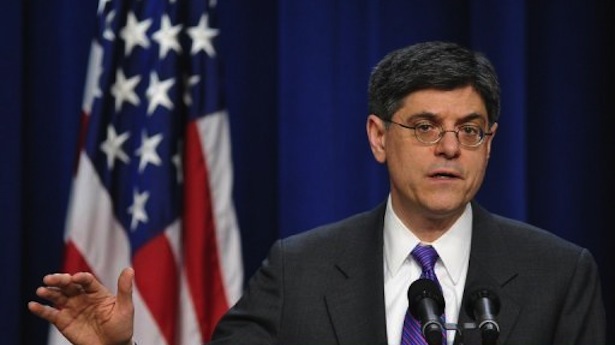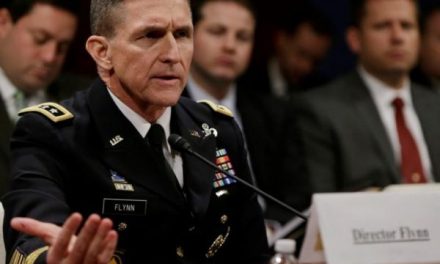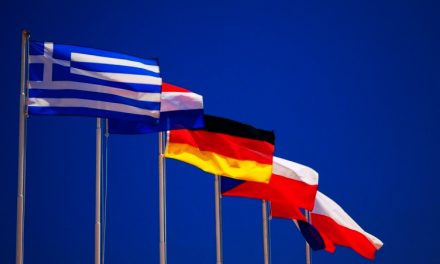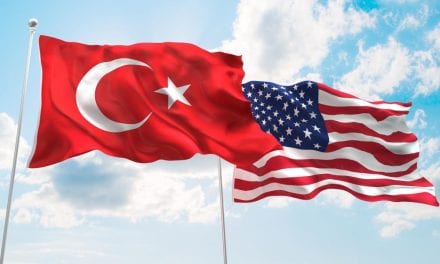By Jacob J. Lew
When U.S. President Barack Obama joined other global leaders at the G-20 summit in Turkey in November 2015, the United States was in the final stages of a multiyear effort to secure the approval of a set of important reforms to the International Monetary Fund.
The reforms, negotiated in 2010 with strong U.S. leadership, were designed to double the organization’s core financial resources to combat financial crises and to modernize its governance by increasing the voting shares of emerging-market economies while maintaining a decisive U.S. voice. But their implementation had been on hold for several years, awaiting approval from Congress. Christine Lagarde, the IMF’s managing director, spoke for many when she opened the meeting in Turkey by saying she prayed that the United States would approve the reforms by the end of the year. Obama responded with a mix of levity and seriousness. “You don’t have to pray, Christine,” he said. “It will get done.”
Indeed, a few weeks later, Congress passed the necessary legislation, and by February 2016, the reforms had gone into effect. Their implementation not only marked a financial and institutional watershed in the IMF’s long history. It also illustrated a distinctive feature of how the United States has exercised economic leadership by expanding the number of nations with an ever-greater stake in the success of a rules based global system that benefits all.
Yet it is worth asking: Why was it so hard to win congressional support that it led some to believe that divine intervention was required? After all, the IMF has embodied U.S. leadership since its conception in 1944. Along with the World Bank and the General Agreement on Tariffs and Trade (and its successor, the World Trade Organization), the IMF has provided the underlying infrastructure of a global economic system that has enabled economies to rise from the ashes of war, created the jobs and rising incomes that have produced a global middle class, and lifted hundreds of millions of people out of poverty.
But the difficulty in securing approval should not have been a complete surprise. The historical ambivalence of the United States toward global engagement is a thread that runs through American history—from George Washington’s Farewell Address, to the Senate’s rejection of the League of Nations after World War I, to the initial reluctance of the United States to enter World War II, and to the difficult process of winning congressional support for the postwar economic system itself. What’s more, Congress was considering the IMF reforms at a time when decades of stagnating wages for lower-skilled workers and rising income inequality had heightened anxieties about trade and the global economy. Making the case for global engagement against this backdrop requires taking a long-term view of the nature of U.S. economic power in a rapidly changing world.
However, making this case is exactly what those who care about U.S. leadership in the world must do. History has shown that U.S. economic leadership is vital to the well-being of American workers and families, as well as to the ability of the United States to project its values and achieve its larger foreign policy objectives. Sustaining U.S. leadership and adapting it to the challenges of our time remain indispensable. U.S. influence in a changing world will increase as the United States shares with emerging economies such as China both the benefits and the responsibilities of managing the global economic and financial system.
FOLLOW THE LEADER
The seven decades following World War II have produced the greatest gains in living standards in history. Globally, real per capita income has quadrupled since 1950, raising living standards for billions of people, extending life expectancies, and expanding access to education.
The benefits of sustained growth have also been geopolitical. The dynamism of economies in North America, Western Europe, and East Asia was integral to the triumph of market-based democracies in the Cold War.
Clear rules for global economic relations create opportunities and incentives to innovate, invest, and work—the critical drivers of economic progress. History shows that the absence of a durable framework not only squanders untapped potential during good times but also creates grave risks during turbulent times. The breakdown of international cooperation in the 1930s—when countries took unilateral actions to secure short-term parochial advantages to the detriment of others—perpetuated the Great Depression.
The Bretton Woods system of cooperation, which the United States advanced in the postwar years, has evolved and endured by providing a foundation for mutual economic gains that would not be achievable by individual countries acting on their own. Such a system of rules and standards based on mutual responsibility does not automatically enforce itself; it requires leadership, a role that has historically been played by the United States. It also requires constant management and improvement, to raise standards and create better mechanisms to ensure that countries keep their commitments, refrain from unfair competitive behavior, and cooperate to confront new challenges.
When the system is working, the stability and predictability it provides encourage countries—even commercial and geopolitical competitors—to adhere to a common set of norms and principles, because doing so is in their long-run economic interests.
The United States was present at the creation of this ambitious system. And a long line of Republican and Democratic administrations with bipartisan support from Congress have been integral to adapting it to new challenges, as well as supplementing it with bilateral and multilateral tools, such as the G-7 and the G-20, to advance its underlying goals. The United States has worked with its partners to promote economic development, strengthen global financial regulation, and combat financial crimes from money laundering to terrorist financing.
Using mechanisms such as the IMF and the G-20, in conjunction with U.S. legislation such as the Trade Facilitation and Trade Enforcement Act of 2015, this system has helped level the playing field in international trade and prevent unfair currency practices aimed at gaining commercial advantage.
International economic cooperation has delivered benefits to the United States and other countries that would have been impossible to attain otherwise. A major reason that the global financial crisis that began in late 2007 never turned into a second Great Depression is that the United States and other countries coordinated their efforts through the IMF and the G-20. Avoiding the downward spiral of protectionism and predatory macroeconomic policies that characterized previous eras, the world’s major economies—the United States, the eurozone, Japan, and China—launched simultaneous economic stimulus programs and mobilized financial assistance to help vulnerable parts of the global system. The episode represented just one of many examples of how economic cooperation makes the American people and others around the world more prosperous and secure.
BENEFITS AND RESPONSIBILITIES
As the world’s leading economy, the United States has nurtured and strengthened this framework of economic cooperation. Over the past few years alone, it has used this system to work with partners to marshal billions of dollars in financial and technical assistance to advance important U.S. goals. The IMF, at the suggestion of the United States, was a first responder to the fiscal stress caused by the Ebola epidemic in West Africa in 2014. That same year, it was also the first responder in supporting a reform oriented government in Ukraine with $17 billion in urgent support, the initial tranche of which was delivered within weeks of Russia’s aggression in Crimea. The scale and speed of this assistance simply would not be possible if the United States had to act alone or stitch together donor contributions in an ad hoc manner. The international financial institutions amplify U.S. influence on the global stage.
By working closely with partners to implement financial sanctions, the United States has also demonstrated how to use the global financial architecture to persuade disruptive actors to abandon behavior that threatens peace and security. An unprecedented coalition imposed sufficient financial pressure to win major nuclear concessions from Iran, and the U.S. Treasury and other agencies are still working closely with allies to impose costs on Russia for its actions in Ukraine and to move against entities that are abetting North Korea’s nuclear violations.
The effective use of these tools has given future U.S. presidents and other leaders more and better options for confronting security threats short of using military force. The ability of the United States to mobilize the international community and sustain the commitment of other nations to the global financial architecture requires the judicious exercise of power. In the years after World War II, it was natural for the United States, which had the world’s largest economy and the only currency that could command sufficient trust as a global reserve asset, to take on the mantle of global economic leadership. And although today there is still no immediate alternative, it would be a mistake to take this dominance for granted. The durability of U.S. leadership depends not just on the economic heft of the United States but also on the manner in which it wields power in international institutions, forges key relationships, and manages those occasions on which it must act unilaterally to protect its core interests. It is important to keep in mind how the United States has maintained its preeminence even as so much has changed since World War II. After the war, the United States accounted for the dominant share of global GDP and nearly all of the world’s hard currency reserves.
Today, it accounts for less than a quarter of global GDP. Yet U.S. leadership has endured, in part because American principles and values are embedded in the international economic framework.
The United States has encouraged other countries to have a stake in the success of this system and a voice in how it is managed, so that its institutions continue to meet the needs of a transforming global economy.
That is why the Obama administration has made it a priority to modernize the IMF’s governance structure and to ensure the organization has sufficient resources. And that is why since becoming treasury secretary in 2013, I have held dozens of conversations with Republican and Democratic leaders in both the House and the Senate to secure congressional approval for these reforms. Key to making the case was explaining how the reforms were critical to sustaining the leadership of the United States on the global stage and its ability to pursue objectives in such places as Ukraine. By underscoring the U.S. commitment to an IMF that is evolving to reflect the changes in the global economy, the United States promotes incentives for emerging countries to remain committed to a system of norms that reflect American values.
As other countries gain greater voice in the international system, they also must accept greater responsibilities. A major one is to engage in responsible foreign exchange practices. Currency fluctuations are a normal and even desirable attribute of the global economy. When the values of currencies are allowed to move according to market forces, the global economy can better adapt to changes in relative economic performance among countries. What is unacceptable, however, is intervention in foreign exchange markets in order to gain a competitive advantage in trade or impede adjustments in the balance of payments.
Competitive devaluation represents a beggar-thy-neighbor fight for a shrinking global pie, not a pathway to stronger global growth.
Strong multilateral institutions such as the IMF and the G-20 are important vehicles for reinforcing norms against predatory currency practices and for mobilizing multilateral pressure against countries that engage in them. At the G-20 meeting in Shanghai this February, members not only committed to using all tools of policy—monetary, fiscal, and structural—to boost economic growth in a time of weak demand. They also committed to refrain from competitive devaluation and, for the first time, to consult on foreign exchange markets to avoid surprises that could threaten global financial stability.
The manner in which the United States has discharged its own responsibilities across the span of global obligations is reflected in the ongoing preeminence of the U.S. dollar as the world’s reserve currency.
By maintaining a capital market of unparalleled depth, transparency, liquidity, and openness, the United States continues to provide the safety net that global investors value most. It is incumbent on U.S. policymakers not to take for granted the reserve-currency status of the dollar but rather to ensure that the country’s economic policies and stewardship of U.S. capital markets sustain this track record of trust and reliability.
This also entails using financial sanctions judiciously—as against Iran, Russia, and North Korea—to support critical national security objectives while designing such sanctions with care and precision to target hostile actors and limit collateral damage to other countries and markets.
THE DOMESTIC AGENDA
Sustaining U.S. leadership in the global economic system begins at home. The United States must lead by example, as it did by bouncing back from the financial crisis.
During the crisis, many were questioning the place of the United States in the global economy. But the U.S. government’s forceful and prompt response—using all available tools—ultimately demonstrated the underlying resilience of the American economy. The U.S. Federal Reserve took aggressive action on the monetary front, while the president and Congress adopted a powerful fiscal stimulus that combined government spending with temporary payroll tax cuts that put money directly in the pockets of American workers. The result has been the longest streak of uninterrupted private-sector job growth in U.S. history; as of early 2016, the economy had experienced over 72 consecutive months of job growth, with 14 million jobs generated in the private sector and the unemployment rate falling to 4.9 percent.
Between 2009 and 2015, the budget deficit declined from nearly ten percent of GDP to 2.5 percent. Meanwhile, improved financial regulation has helped address the causes of the crisis, producing a better-capitalized and more stable financial system.
But along the way, there were a number of moments when the world wondered whether political conflict had rendered the American system incapable of meeting the challenge. Government shutdowns and the threat of government default heightened global anxieties. U.S. Treasury bonds define the risk-free rate of return around the world, and the chance that political turmoil could lead to any form of default left lasting scars, wounds that would be reopened immediately at the first sign of a repeat episode. Moreover, Washington’s inability to reach a consensus on domestic issues such as rebuilding aging infrastructure, reforming the broken business tax code, and passing immigration reform—issues on which there is in fact the potential for bipartisan consensus—raises questions about the country’s future economic strength.
The United States needs to address these issues for domestic reasons, and when it does, it will be more capable of achieving its international objectives, as well.
Last summer, when Congress approved legislation granting the president trade promotion authority, it demonstrated yet again that, working together, both sides of the aisle can tackle difficult issues. The move also opened a pathway for the approval of the Trans-Pacific Partnership (TPP), signed in February, which will level the global playing field for U.S. workers and firms while getting other countries to meet a high bar on environmental, labor, and intellectual property standards—yet another example of the United States promoting its values in global economic institutions.
Similarly, when Congress reauthorized the Export-Import Bank last year, it leveled the playing field for U.S. firms, including small businesses, and gave the United States leverage to prevent other governments from unfairly subsidizing their exporters through artificially cheap financing.
This February, the president signed the Trade Facilitation and Trade Enforcement Act, which gives the U.S. Treasury new tools to fight unfair currency practices. By enumerating objective criteria that would automatically trigger enhanced scrutiny of a country’s currency practices—such as a significant bilateral trade surplus with the United States, a sizable current account surplus, and persistent one-sided intervention in foreign exchange markets—the legislation put governments on notice that such practices will be caught and subject to a U.S. response. Just days after the act became law, the Treasury made it clear to U.S. trading partners that the United States will vigorously apply these criteria, which—in tandem with existing multilateral mechanisms through the IMF and the G-20—will be a strong deterrent to would-be currency manipulators.
Without congressional partnership, many of these important steps would have been impossible. Likewise, it will take congressional action to address the underlying concerns of many Americans that make international commitments difficult. Congress and the executive branch must work together on domestic policies that can assure anyone willing to study and work that they will have the opportunity to advance in a changing economy. And it is critical that Congress support policies to help workers dislocated by global competition, such as Trade Adjustment Assistance (a federal program for which the president secured a six-year reauthorization last year), not only when trade agreements are pending but also during the long periods in between, when anxieties are no less pronounced but Washington is too often silent.
Although the power of American ideas and values remains a pillar of the global system, the continuing financial commitment of the United States to the international financial institutions is also essential. This includes having Congress appropriate the funds required to meet U.S. pledges to the multilateral development banks. As director of the Office of Management and Budget in the 1990s, I was personally involved in the effort to clear unmet U.S. commitments to the UN at a moment when that institution was addressing key U.S. security priorities in southeastern Europe and Africa, as well as Iraq. Today, Washington is again accruing unmet pledges to many organizations to which it will turn at moments of crisis or to pursue other goals. To put it bluntly, the United States must pay its bills. The return on investment in terms of sustaining its influence and advancing its values is enormous. And if the United States does not lead, others will act without it.
The world’s future economic challenges will require the United States to invest a great deal of effort, time, and financial resources. Making the case for sustained U.S. leadership is not always easy. Unilateralism or isolationism often make for better sound bites.
So it is incumbent on everyone who believes in the benefits that international cooperation has brought to the United States to be vocal in articulating the economic and geopolitical case for an ongoing U.S. commitment to global economic engagement.
THE GLOBAL AGENDA
The ongoing agenda for U.S. leadership encompasses a broad range of global priorities, which will not end with the current administration.
First, the United States is working to further modernize the IMF’s system of governance and improve its capacity to deal with evolving challenges. Although the IMF must remain the world’s first responder to financial crises, to advance its core mission of promoting the efficient operation of the global economy, it must also intensify its analysis of and raise its voice on such critical issues as exchange rates, current account imbalances, and shortfalls in global aggregate demand. The United States should also continue to press the IMF to promote greater transparency among its members when it comes to economic and financial data, including data about foreign reserves. More information means better policy cooperation, as well as more efficient functioning of financial markets.
Second, the United States is acting to further strengthen the ability of the World Bank and the regional development banks to support sustainable and inclusive growth. This means ensuring that these institutions have sufficient resources, policy expertise, and links to the public and private sectors to help countries achieve the UN’s Sustainable Development Goals for access to energy, food security, health and education, gender equality, and infrastructure development. It also means ensuring that they have the right tools to address challenges such as state fragility, forced migration, natural disasters, and disease epidemics. To mobilize resources to cut carbon emissions and build societies resilient to climate change, the United States is already helping existing institutions partner with the private sector and with relatively new institutions such as the Green Climate Fund, an entity that grew out of the UN Framework Convention on Climate Change.
In this effort and others, the World Bank’s social, environmental, and fiduciary standards will prove vital to promoting best practices. The United States is also working closely with both the private and the public sector to expand access to financial services for underserved and poor communities worldwide, since greater inclusion in the formal financial sector helps reduce poverty and makes it harder for people to engage in illicit or threatening financial activity.
Third, the United States is continuing to modernize the global trading system by pushing for innovative features in new trade agreements that can eventually serve as global standards to meet the needs of a complex and evolving world economy. The TPP not only promises to open markets to U.S. firms and support higher-paying jobs for American workers; it also offers innovative approaches to key global issues, such as strengthened labor and environmental provisions, robust protections for trade in services, and controls on the behavior of state-owned enterprises to ensure fair competition. Also, in a first of- its-kind declaration on macroeconomic policies, TPP countries have committed to avoid manipulating exchange rates for competitive purposes, to adhere to unprecedented transparency on their exchange rate policies, and to hold one another accountable for their commitments through new bilateral and multilateral mechanisms. In addition to securing congressional ratification of the TPP, U.S. trade priorities include ongoing negotiations with the EU on the Transatlantic Trade and Investment Partnership and working with a wide array of partners on an agreement to liberalize trade in services.
Fourth, to prevent a repeat of the financial crisis, the United States continues to advance efforts to reform the international financial regulatory system. Starting at the G-20 summit in Pittsburgh in 2009, the United States led the call for more rigorous capital standards for banks, greater transparency in the derivatives market, and stronger tools for managing the failure of financial institutions. In the seven years since, in each of these areas, U.S. leadership on the Financial Stability Board (FSB), a G-20 body that monitors the global financial system, has made that system more resilient. With many of the critical standard-setting reforms in place, the focus now shifts to giving them full effect, by implementing them comprehensively and consistently in major financial centers across the world. Governments must also be attentive to emerging threats, from cyberattacks to the growth of nonbank financial companies that are systemically important yet not subject to traditional oversight.
Critics often mischaracterize the FSB, claiming that it will usurp U.S. regulators. Such fears are unwarranted: U.S. regulators have final responsibility and the independent authority to protect the integrity of the U.S. financial system. In executing their prudential responsibilities, U.S. regulators apply rigorous standards that strive to be at the frontier of best practices. The purpose of the FSB is to embed such high standards into the international regulatory framework to safeguard the global financial system and provide a level playing field on which firms from various countries can compete. The last thing the global economy needs in the wake of the financial crisis is for countries to run away from high standards in a regulatory race to the bottom.
Fifth, the United States is expanding efforts to combat terrorist financing, corruption, money laundering, and other financial crimes. The U.S. Treasury is strengthening its anti-money-laundering and counterterrorist-financing rules at home and working through the Financial Action Task Force, an intergovernmental body, to improve their enforcement globally. In December 2015, I chaired a meeting of my counterparts from the other members of the UN Security Council—the first such meeting for finance ministers—where we unanimously passed a resolution to bolster the international effort to combat terrorist financing, specifically against the Islamic State, or ISIS. This mission is never complete. As financial innovation reshapes the international financial system, governments must stay a step ahead by updating their regulatory regimes to combat abuse. At the same time, they must make clear that such regulations are not intended to impede the legitimate provision of financial services by global banks—especially to the underserved. Combating abuse and promoting financial inclusion are complementary goals, in that informal cash economies stifle economic potential and foster illicit finance.
Finally, the Treasury is committed to building on the progress it has made in cooperating with emerging-market partners such as Argentina, Brazil, India, and Mexico on key priorities such as facilitating investment, improving the implementation of tax policies, promoting financial inclusion, and combating money laundering and terrorist financing.
These efforts, along with my discussions with counterparts from other emerging economies, are crucial to aligning priorities on macroeconomic policy and governance in the IMF, the World Bank, and the G-20.
The relationship between the United States and China, the world’s two largest economies, is uniquely important to advancing shared prosperity, maintaining a constructive global economic order, and making progress on existential challenges such as climate change. The U.S.-China Strategic and Economic Dialogue has helped build the relationship among economic and diplomatic officials from the two countries and has provided a platform for discussing with China its continuing efforts to rebalance its economy toward household consumption and to give the market a decisive role in its economy, as well as to embrace greater transparency and predictability in its policymaking.
The dialogue has also served as a critical venue for U.S. officials to impress on their Chinese counterparts the importance of making an orderly transition to a market-determined exchange rate.
At the 2013 meeting of the Strategic and Economic Dialogue, the United States and China announced a milestone with the start of substantive negotiations on a U.S.-Chinese bilateral investment treaty.
The goal is to set ambitious standards for protecting investments that would benefit not just U.S. firms abroad but also U.S. companies and workers at home. This year, the United States is also working intensely with China on an agreement within the World Trade Organization to lower tariffs on environmental goods such as wind turbines and on guidelines concerning government-backed export financing.
This discussion has also focused on the importance of China taking on the responsibilities that go along with its economic significance.
With the creation of institutions such as the Asian Infrastructure
Investment Bank, China is playing a greater role in the international financial architecture. Some have suggested that the United States opposed the creation of the AIIB because it posed a threat to U.S. influence in the international financial system. That is simply not the case.
As a participant in the key discussions, I conveyed the same message both to China directly and to countries considering joining the institution: namely, that it was paramount to incorporate in the AIIB’s policies and procedures the high-quality standards and lessons learned from the decades of experience of the World Bank and regional development banks, so that the AIIB can reinforce the existing global financial architecture.
To that end, during the visit of Chinese President Xi Jinping to Washington in September 2015, China pledged that such new institutions would operate in line with the high governance and environmental standards of existing institutions such as the World Bank. And it is important that China keep this pledge. Significantly, Xi also committed to meaningfully increase China’s financial contributions to the work of the World Bank and the regional development banks in the world’s poorest countries. A successful AIIB that meets high standards and collaborates effectively with the other international financial institutions would be a positive thing for the global economy, and the United States will continue to advance the case for such standards and collaboration.
China’s rotation as president of the G-20 in 2016 further underscores the importance of the relationship between the two countries, offering new opportunities to work together to strengthen the global economy.
ONWARD AND UPWARD
The last year alone saw major progress in advancing U.S. leadership in the global economy. The Obama administration worked with Congress to secure IMF reform, trade promotion authority, and the reauthorization of the Export-Import Bank. The United States reached agreement with its international partners on the TPP, a landmark climate agreement, the Iran nuclear deal, and an expanded strategy to stop terrorist financing. But the United States cannot take its global role for granted.
It must continue to ask whether its actions—and inactions—enhance its capacity to maintain this preeminent leadership role in the future. The farsightedness of previous generations of Americans provided a solid foundation on which to advance American values and build a prosperous future for the United States and other countries. The task now is to strengthen this architecture and adapt it to new challenges. In doing so, the United States will not only address the urgent issues of the present day; it will also ensure that the next generation of Americans inherits an even stronger platform for navigating the economic and financial landscape of the future.



















